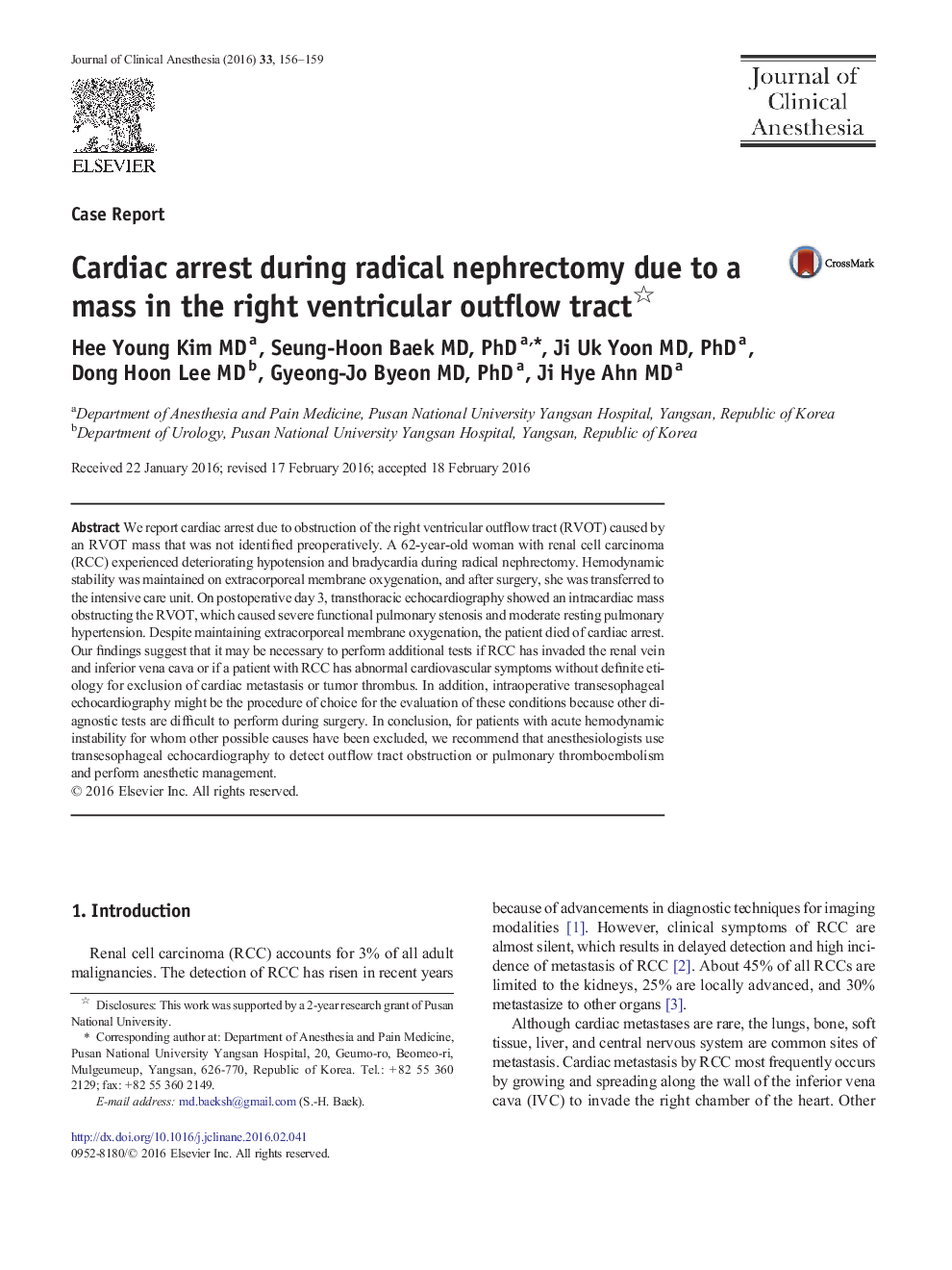| Article ID | Journal | Published Year | Pages | File Type |
|---|---|---|---|---|
| 2762145 | Journal of Clinical Anesthesia | 2016 | 4 Pages |
Abstract
We report cardiac arrest due to obstruction of the right ventricular outflow tract (RVOT) caused by an RVOT mass that was not identified preoperatively. A 62-year-old woman with renal cell carcinoma (RCC) experienced deteriorating hypotension and bradycardia during radical nephrectomy. Hemodynamic stability was maintained on extracorporeal membrane oxygenation, and after surgery, she was transferred to the intensive care unit. On postoperative day 3, transthoracic echocardiography showed an intracardiac mass obstructing the RVOT, which caused severe functional pulmonary stenosis and moderate resting pulmonary hypertension. Despite maintaining extracorporeal membrane oxygenation, the patient died of cardiac arrest. Our findings suggest that it may be necessary to perform additional tests if RCC has invaded the renal vein and inferior vena cava or if a patient with RCC has abnormal cardiovascular symptoms without definite etiology for exclusion of cardiac metastasis or tumor thrombus. In addition, intraoperative transesophageal echocardiography might be the procedure of choice for the evaluation of these conditions because other diagnostic tests are difficult to perform during surgery. In conclusion, for patients with acute hemodynamic instability for whom other possible causes have been excluded, we recommend that anesthesiologists use transesophageal echocardiography to detect outflow tract obstruction or pulmonary thromboembolism and perform anesthetic management.
Related Topics
Health Sciences
Medicine and Dentistry
Anesthesiology and Pain Medicine
Authors
Hee Young MD, Seung-Hoon MD, PhD, Ji Uk MD, PhD, Dong Hoon MD, Gyeong-Jo MD, PhD, Ji Hye MD,
